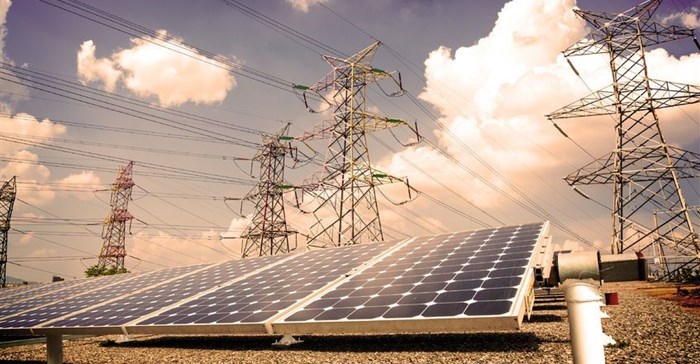
Top stories





ESG & SustainabilitySouth Africa’s carbon tax should stay: climate scientists explain why
Britta Rennkamp et al. 40 minutes

More news





















The traditional questions that arise are: Is there enough space for all the wind turbines and solar panels to provide all our energy needs? What happens when the sun doesn’t shine and the wind doesn’t blow? Won’t renewables destabilise the grid and cause blackouts?
In a review paper last year in the high-ranking journal, Renewable and Sustainable Energy Reviews, Benjamin Heard and colleagues presented their case against 100% renewable electricity systems. They doubted the feasibility of many of the recent scenarios for high shares of renewable energy, questioning everything from whether renewables-based systems can survive extreme weather events with low sun and low wind, to the ability to keep the grid stable with so much variable generation.
But a new study dispels any roadblocks on the way to a 100% renewable future. The researchers from the Karlsruhe Institute of Technology, the South African Council for Scientific and Industrial Research (CSIR), Lappeenranta University of Technology, Delft University of Technology and Aalborg University have analysed hundreds of studies from across the scientific literature to answer each of the apparent issues.
“While several of the issues raised by the Heard paper are important, you have to realise that there are technical solutions to all the points they raised, using today’s technology,” says the lead author of the response, Dr Tom Brown of the Karlsruhe Institute of Technology.
“Furthermore, these solutions are absolutely affordable, especially given the sinking costs of wind and solar power,” says Professor Christian Breyer of Lappeenranta University of Technology, who co-authored the response.
“It’s beyond any scientific doubt that a renewables-led energy system is technically feasible, and recent technology cost developments for solar and wind have now made it economically viable too. Good news indeed for sun- and wind-rich countries like South Africa," says Dr Tobias Bischof-Niemz, another co-author of the response, and former CSIR employee.
Brown cites the worst-case solution of hydrogen or synthetic gas produced with renewable electricity for times when imports, hydroelectricity, batteries, and other storage fail to bridge the gap during low wind and solar periods during dark European winters. Luckily, this is a problem that a country like South Africa with very little seasonality in solar supply does not need to worry about too much. More importantly, the stability of the grid poses specific challenges in South Africa with existing low-levels of interconnectivity with neighbours. For maintaining stability there is a series of technical solutions, from rotating grid stabilisers to newer electronics-based solutions. The scientists have collected examples of best practice by grid operators from across the world, from Denmark to Tasmania.
“There are some persistent myths that 100% renewable systems are not possible,” says Professor Brian Vad Mathiesen of Aalborg University, another co-author. “Our contribution deals with these myths one-by-one, using all the latest research. Now let’s get back to the business of modelling low-cost scenarios to eliminate fossil fuels from our energy system, so we can tackle the climate and health challenges they pose.”